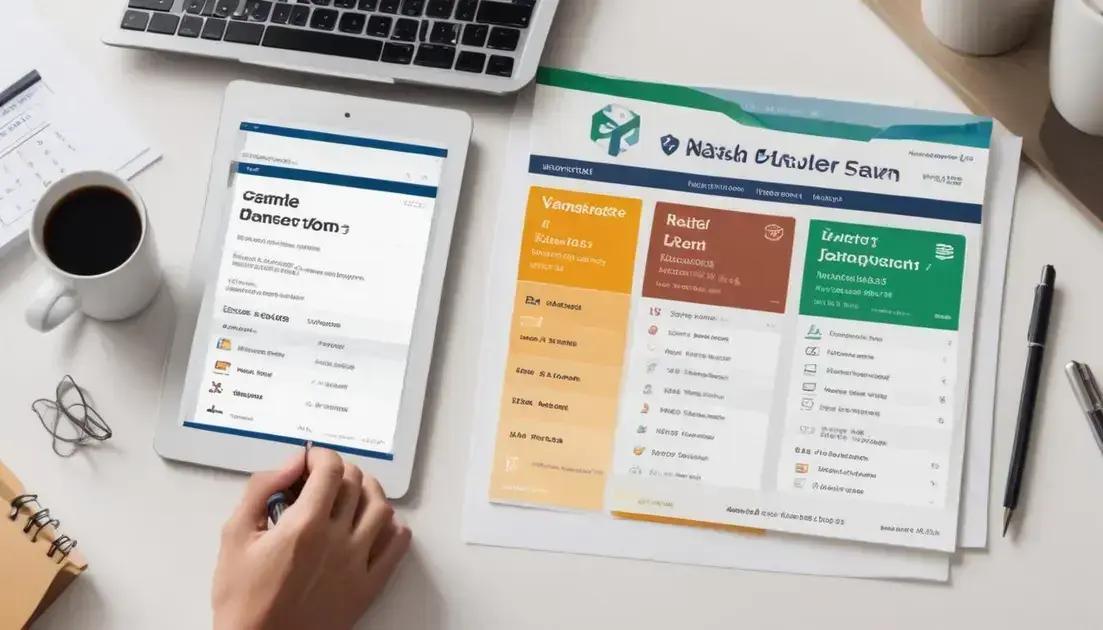Home equity mortgage rates: how to secure the best deal for your home

Thinking about tapping into your home’s equity? Home equity mortgage rates can make or break your savings. Here’s how to navigate the market and lock in a deal that works for you.
What are home equity mortgage rates?
Home equity mortgage rates are the interest rates charged on loans that allow homeowners to borrow against the equity they’ve built in their property. These rates can vary based on factors like credit score, loan-to-value ratio, and market conditions. Unlike traditional mortgages, home equity loans or lines of credit (HELOCs) use your home as collateral, which often results in lower rates compared to unsecured loans.
How Home Equity Mortgage Rates Work
Lenders determine home equity mortgage rates by assessing risk. The more equity you have and the better your credit, the lower your rate is likely to be. Fixed-rate home equity loans provide stability with consistent payments, while HELOCs often have variable rates that fluctuate with market trends.
Why Home Equity Rates Matter
Securing a low rate can save you thousands over the life of the loan. Whether you’re using the funds for home improvements, debt consolidation, or other expenses, understanding how these rates work helps you make smarter financial decisions.
Comparing offers from multiple lenders is key to finding the best deal. Even a small difference in rates can have a big impact on your monthly payments and total interest paid.
How home equity mortgage rates compare to other loans
Home equity mortgage rates typically offer better terms than most other loan types because they’re secured by your property. While personal loans and credit cards may charge 10-25% APR, home equity loans often range between 5-8% for qualified borrowers. This makes them one of the most affordable ways to access large sums of money.
Comparison to Traditional Mortgages
First mortgages usually have slightly lower rates than home equity products (about 0.5-2% less) because they hold primary lien position. However, home equity rates remain competitive, especially when compared to alternatives like personal loans or credit cards.
HELOCs vs Home Equity Loans
HELOCs often start with introductory rates below fixed-rate home equity loans, but these variable rates can increase over time. Fixed-rate home equity loans provide payment stability that’s similar to your primary mortgage.
When considering refinancing your first mortgage versus taking a home equity loan, remember that closing costs are typically lower for home equity products. This makes them ideal for borrowers who don’t want to reset their primary mortgage term.
Factors that influence home equity mortgage rates
Several key factors influence home equity mortgage rates, and understanding them can help you secure better terms. Your credit score is the most significant factor – borrowers with scores above 740 typically qualify for the lowest rates, while scores below 620 may face higher rates or rejection.
Loan-to-Value Ratio (LTV)
The amount of equity you have plays a crucial role. Most lenders prefer an LTV below 80%, meaning you’ve built at least 20% equity in your home. The more equity you have, the better rates you’ll qualify for as it reduces the lender’s risk.
Debt-to-Income Ratio
Lenders examine your existing debts compared to your income. A DTI below 43% is generally required, but lower ratios (under 36%) qualify for the most competitive rates. Paying down other debts before applying can improve your rate.
Current market conditions and the Federal Reserve’s interest rate policies also affect home equity rates. When the Fed raises rates, home equity products typically become more expensive. Timing your application during periods of economic stability can help secure better terms.
Loan Amount and Term
Larger loans sometimes qualify for slightly better rates due to lender profitability. Shorter terms (5-10 years) usually have lower rates than longer terms (15-30 years), though your monthly payments will be higher.
How to qualify for the best home equity mortgage rates
Qualifying for the best home equity mortgage rates requires preparation and understanding of lender requirements. Start by checking your credit score – most lenders require at least 680 for competitive rates, with 740+ qualifying for the best terms. Obtain free credit reports and correct any errors before applying.
Improving Your Financial Profile
Pay down existing debts to lower your debt-to-income ratio below 43%. Lenders favor borrowers with stable employment history (2+ years at current job) and consistent income. Gather two years of tax returns and recent pay stubs to demonstrate financial stability.
Building Home Equity
Most lenders require at least 15-20% equity in your home after the loan. Avoid recent cash-out refinances that reduce your equity position. Consider waiting if property values in your area are rising, as this naturally increases your equity.
Shop multiple lenders within a 14-45 day window to minimize credit score impacts from multiple inquiries. Compare not just rates but also fees, as these can significantly affect your total costs. Local credit unions often offer competitive rates to members.
Rate Lock Strategies
Once approved, consider locking your rate if market trends suggest rising interest rates. Some lenders offer float-down options if rates improve before closing. Ask about relationship discounts if you have other accounts with the lender.
Top lenders offering competitive home equity mortgage rates

When searching for the best home equity mortgage rates, several lenders consistently offer competitive options. National banks like Chase, Bank of America, and Wells Fargo provide reliable programs with rate discounts for existing customers. Online lenders such as Rocket Mortgage and Better.com often have lower overhead costs that translate to better rates.
Credit Union Advantages
Local credit unions frequently offer the most competitive home equity rates, sometimes 0.25%-0.5% below big banks. Navy Federal Credit Union and PenFed are notable for their member benefits, while state-specific credit unions offer personalized service.
Online-Only Options
Digital lenders like Figure and LoanDepot specialize in fast approvals and competitive rates for qualified borrowers. These lenders typically offer rate quotes with soft credit checks that won’t affect your score, making comparison shopping easier.
Regional banks often have special promotions for local homeowners. Check with banks in your area for limited-time rate discounts or fee waivers. Some lenders offer relationship discounts if you maintain checking/savings accounts with them.
Comparing Lender Offers
Look beyond just the interest rate – consider closing costs, annual fees (for HELOCs), and prepayment penalties. The best lender for you depends on your credit profile, loan amount, and how quickly you need funds.
How to compare home equity mortgage rates effectively
Comparing home equity mortgage rates effectively requires more than just looking at the advertised APR. Start by gathering quotes from at least 3-5 lenders within the same 14-day period to minimize credit score impacts. Pay attention to whether the rate is fixed or variable, and ask about rate lock policies.
Understanding the Full Cost
Look beyond the interest rate to compare closing costs, which typically range from 2-5% of the loan amount. Some lenders offer no-closing-cost options but compensate with higher rates. Calculate the breakeven point to determine which option saves you more long-term.
Comparing Loan Features
Evaluate repayment terms, prepayment penalties, and draw periods (for HELOCs). Some lenders offer interest-only payment options initially, while others require immediate principal+interest payments. Consider how these features align with your financial goals.
Use online mortgage calculators to compare the total interest paid over the life of different loan offers. A slightly lower rate with a shorter term might save you thousands compared to a longer-term loan with a marginally higher rate.
Negotiation Strategies
Use competing offers as leverage to negotiate better terms. Many lenders will match or beat a competitor’s verified offer. Ask about relationship discounts if you have other accounts with the institution.
The impact of credit score on home equity mortgage rates
Your credit score has a dramatic impact on home equity mortgage rates, with differences of 1-3% between credit tiers. Borrowers with excellent credit (740+) typically qualify for rates about 1.5% lower than those with fair credit (620-679), which can save tens of thousands over the loan term.
How Lenders View Credit Scores
Lenders use credit scores to predict risk – higher scores indicate lower risk of default. Each 20-point increase in your FICO score can qualify you for better rate tiers. The biggest jumps occur at 700, 740, and 760 thresholds.
Improving Your Credit Before Applying
Pay down credit card balances below 30% of limits (ideally under 10%), avoid new credit inquiries for 6 months before applying, and correct any errors on your credit reports. These steps can boost your score significantly in 2-3 months.
Even with a low score, you may qualify through alternative lenders or by accepting higher rates. However, improving your credit first often leads to better long-term savings. Some lenders offer rate reduction programs if your score improves after origination.
Credit Score Ranges and Typical Rates
As of 2023, borrowers with 760+ scores qualify for rates around 5-6%, while those in the 620-679 range may see 7-9%. Below 620, options become limited and rates can exceed 10%. These ranges vary by lender and market conditions.
Fixed vs. variable home equity mortgage rates
Choosing between fixed and variable home equity mortgage rates depends on your financial situation and risk tolerance. Fixed-rate loans offer stability with consistent payments throughout the term, typically ranging from 5-30 years. These are ideal when interest rates are historically low or if you prefer predictable budgeting.
How Variable Rates Work
Variable-rate HELOCs usually start with lower introductory rates that adjust periodically (often monthly or quarterly) based on an index like the Prime Rate. While initially cheaper, these rates can increase significantly over time, making them riskier for long-term borrowing.
Current Market Considerations
In rising rate environments, fixed rates protect against future increases. During periods when rates are expected to decline or remain stable, variable rates may offer short-term savings. Some lenders offer conversion options to switch from variable to fixed rates later.
The break-even analysis can help determine which option saves more money. Calculate how long you’ll need the funds – for short-term needs (under 5 years), variable rates often win. For longer terms, fixed rates usually provide better value despite higher initial rates.
Hybrid Options
Some lenders offer hybrid products that combine features of both, like fixed-rate periods on HELOCs or rate caps that limit how much variable rates can increase. These can provide a middle ground for borrowers who want some stability but also initial rate advantages.
How to negotiate better home equity mortgage rates
Negotiating better home equity mortgage rates requires preparation and strategy. Start by improving your credit score – even a 20-point increase can qualify you for lower rates. Gather competing offers from multiple lenders to use as leverage in negotiations.
Timing Your Negotiation
Approach lenders at the end of the month when they may be more motivated to meet quotas. Consider market conditions – when applications are down, lenders may offer better terms to attract business.
Leveraging Relationships
Existing banking relationships can be powerful. Ask about loyalty discounts if you have other accounts with the institution. Some lenders offer 0.125%-0.25% rate reductions for automatic payments or maintaining certain balances.
Be willing to negotiate all loan terms, not just the interest rate. Sometimes you can get better value by reducing fees or getting more flexible repayment terms. Don’t hesitate to ask the lender to match or beat a competitor’s offer in writing.
Professional Assistance
Consider working with a mortgage broker who can negotiate on your behalf. Their relationships with multiple lenders and knowledge of the market can often secure better terms than individual borrowers can obtain alone.
Common mistakes to avoid when shopping for rates

When shopping for home equity mortgage rates, many borrowers make costly mistakes that can lead to higher payments. One common error is focusing only on the interest rate while ignoring fees and closing costs, which can add thousands to your loan expenses.
Credit Check Mistakes
Allowing multiple lenders to run hard credit checks over an extended period can lower your credit score. Instead, complete all rate shopping within a 14-45 day window, which credit scoring models typically count as a single inquiry.
Timing Errors
Waiting too long to lock in a favorable rate can backfire if market conditions change. Conversely, locking too early might prevent you from benefiting from potential rate drops. Monitor market trends and ask lenders about float-down options.
Overlooking relationship discounts is another frequent oversight. Many institutions offer better rates if you have existing accounts. Also, don’t assume big banks always have the best deals – credit unions and online lenders often offer more competitive terms.
Documentation Pitfalls
Failing to gather all required financial documents before applying can delay the process and potentially cause you to miss favorable rate windows. Have pay stubs, tax returns, and asset statements ready to streamline approval.
How to refinance your home equity mortgage for better rates
Refinancing your home equity mortgage can secure better rates when market conditions improve or your financial situation changes. Start by reviewing your current loan terms and comparing them to today’s rates – a difference of 1% or more typically makes refinancing worthwhile.
When to Consider Refinancing
The ideal time to refinance is when rates have dropped significantly since you obtained your original loan or when your credit score has improved by 50+ points. Also consider refinancing if you want to switch from a variable to fixed rate for stability.
The Refinancing Process
Begin by getting quotes from multiple lenders, including your current one. You’ll need to requalify with updated financial documents and go through a new appraisal in most cases. Calculate the break-even point where savings outweigh closing costs (typically 2-5% of loan amount).
Consider shortening your loan term if possible – while monthly payments may increase, you’ll save substantially on interest over time. Some lenders offer no-closing-cost refinancing options, though these usually come with slightly higher rates.
Alternative Refinancing Options
If a full refinance doesn’t make sense, ask your lender about rate modification programs. Some institutions offer streamlined refinancing for existing customers with reduced paperwork and fees.
Future trends in home equity mortgage rates
Understanding future trends in home equity mortgage rates can help homeowners make strategic borrowing decisions. Economists predict rates will remain volatile in 2024-2025, influenced by Federal Reserve policies, inflation trends, and global economic conditions.
Impact of Economic Factors
As the Federal Reserve continues adjusting benchmark rates to control inflation, home equity rates will likely follow similar patterns. A potential economic slowdown could lead to rate decreases, while persistent inflation may keep rates elevated longer than expected.
Technology’s Role in Rate Trends
Digital mortgage platforms are increasing competition among lenders, potentially driving rates down. Automated underwriting and AI-powered risk assessment may allow lenders to offer better rates to qualified borrowers while maintaining profitability.
Climate change considerations are emerging as a new factor, with some lenders offering preferential rates for energy-efficient home improvements. This green lending trend may create specialized home equity products with unique rate structures.
Demographic Influences
As millennials enter peak home equity borrowing years and baby boomers tap home equity for retirement, demand fluctuations could impact rate competitiveness. Lenders may introduce more flexible products to serve these diverse needs.
Making the Most of Home Equity Mortgage Rates
Understanding home equity mortgage rates puts you in control of your financial future. Whether you’re looking to renovate, consolidate debt, or fund major expenses, the right rate can save you thousands over the life of your loan.
Remember that rates change frequently, so timing matters. Keep an eye on market trends, maintain good credit, and don’t hesitate to shop around – even small rate differences can have big impacts.
With the knowledge you’ve gained about rate factors, comparison strategies, and refinancing options, you’re now equipped to make smart decisions about your home equity. Your home isn’t just where you live – it’s a powerful financial tool when used wisely.






